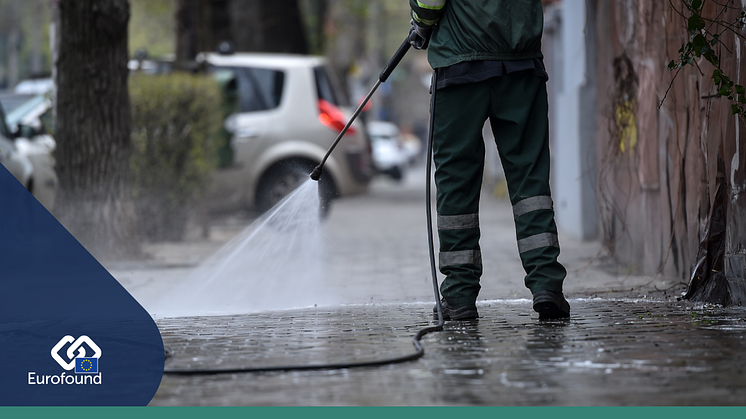
News -
Recent losses in real minimum wages have not eroded long-term gains in purchasing power
While losses in real minimum wages have occurred in several countries across the European Union, these have not eroded the long-term gains of purchasing power that have occurred across the EU since 2013. In an effort to offset inflation, governments have significantly increased nominal minimum wages across Europe. In 2023, the median nominal increase was almost 11%, compared with just 5% in 2022.
Eurofound’s Minimum wages in 2023: Annual review is published today, in the context of unprecedented inflation across Europe. The report shows that the early impacts of the EU Directive on adequate minimum wages are limited, but noticeable, with more countries electing to use the international ‘indicative reference values’ mentioned in the directive – 50% of the average or 60% of the median wage – when determining their targets for new levels. In addition, this year’s report presents, for the first time, an in-depth insight into net minimum wages for single adults.
High inflation rates have meant that the large nominal increases seen in the last year have not translated into significant gains in purchasing power for minimum wage workers. Germany and Belgium are the most notable exceptions to this general trend.
Despite this slowdown in purchasing power increases in the last year, the past decade has seen minimum wage earners in most EU countries benefit in various ways from increases in statutory minimum wages. Their purchasing power has increased in real terms while gross wages have also grown more than average wages, often at rates exceeding labour productivity. Those from the central and eastern European countries enjoyed the largest real gross and net wage increases in the decade – albeit starting from very low absolute levels.
The research also highlights that the average employee tax rate (personal income tax and social insurance contributions) on gross minimum wage for a single earner without children ranged from 6% in Spain to 40% in Romania. The most substantial change in minimum wage regulations in the last year was the introduction of a monthly statutory minimum wage in Cyprus.
Speaking on the publishing of the annual report, Eurofound Executive Director Ivailo Kalfin emphasised the impact of high inflation, ‘Rising inflation has undoubtedly made life very difficult for many in the European Union during this time of crisis, but it is a relief that the gains we have made over the last decade have not been eroded. As a result of the EU’s Directive on adequate minimum wages and individual member states making significant efforts to increase minimum wages in nominal terms, many workers have avoided catastrophic losses in purchasing power. Eurofound is committed to providing this research to policymakers, so that we can continue to protect the most vulnerable in our societies in these challenging times of crisis and transition.’
More information:




